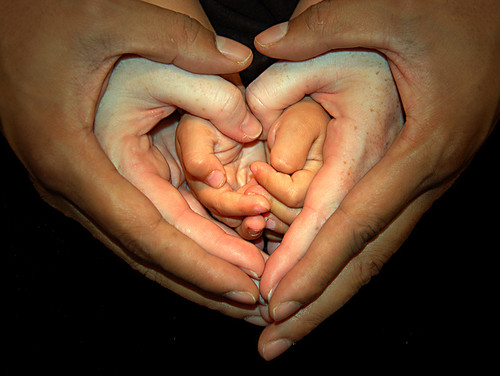Am I my brother’s keeper? Why Genesis suggests we were meant to live inter-connected lives.
I’ve been spending Wednesdays piecing together why I think friendship should be among the most important beliefs of the Christian faith.
We started at the VERY beginning: thinking about how God appeared as a relational being from the start. Then we moved onto wondering if God’s instruction to “be fruitful” might’ve included the idea that we bear God (or at least his likeness) to each other.
As we continue, I thought we might spend a minute on the second half of the “be fruitful and multiply” verse found in Genesis 1:28.
God blessed them and said to them, “Be fruitful and increase in number; fill the earth and subdue it. Rule over the fish in the sea and the birds in the sky and over every living creature that moves on the ground.”
Then, in the second Creation account in Genesis 2, we find the following words:
“Then the Lord God took the man and put him in the Garden of Eden to tend and keep it.”
In both of these verses, God builds out the intention of human life even further then. Be fruitful. Build families. Spread out. Take care of the earth and all its inhabitants.
The word tend, which comes from the Hebrew word abad, means “to serve.” And the word keep, which comes from the Hebrew word shamar, means “to exercise great care over.”
I can’t help thinking then that in addition to being made in God’s image, this charge to care for the earth suggests we are also made to engage some of the same kind of work that God engages. That sharing some of God’s functions–such as tending to the land–also demonstrates our relatedness to him.
Could this even be a very early hint at something we hear Jesus say much later? Those who do the will of my Father are my mother and brothers and sisters.
Those who serve Creation, as the Father willed, are related to the Father.
And possibly, I’ll add, to each other.
It was an inter-related world.
If people were charged to care for Creation, then from the beginning humans were not only deeply connected to God and his work, but logically, they were also connected to each other by default.
They would have been nourished by and dependent on the same land for food; they would have relied on the same sources of water; they would have been threatened by the same natural disasters and so on.
Surely in order to flourish–to continue the “good” God saw in his creative work–this required people to band together. If they didn’t live in connectedness, individuals would have had a more difficult time growing enough food resources to sustain life, they would have had a more daunting time sheltering and protecting themselves, and they would’ve had a harder time preserving and passing on learning.
Disconnected, Creation would suffer.
This is not necessarily surprising since God, by the Biblical writers’ admission, seemed to expect humankind to feel instinctive bonds to one another. Think about how Cain’s behavior and the tenor of Noah’s generation, for example, are portrayed as offending God’s sensibilities. The fact that they broke ties of interrelationship and harmed their fellow humans grieved the heart of God. God did seem in fact to believe that humans are their brother’s keeper.
When we break relationship, it works against the bearing of God’s image, it works against the care of the earth, and it works against the bonds God seemingly expected us to feel.
If we are made in God’s image, and thus some likeness of God is present in each of us, perhaps God and his intentions are even more evident when a few or more God-imaged-people live and work together. Or to put it in familiar language, where two are three are gathered in my name, there will I be.
And so sometimes I think I see familiar New Testament imagery woven through even the pages of Genesis. God’s likeness in us prompts us to bear fruit at Eden…and onward. Abide in Me, and I in you. As the branch cannot bear fruit of itself unless it abides in the vine, so neither can you unless you abide in Me.
In the pages of Genesis, where we jointly resemble God or in the pages of John where we are all tied to the same vine, our connection to God also connects us to each other.
Photo source: Hands



Staci October 8, 2014 (6:31 pm)
I know analyzing passages or following themes through scripture can be tedious, but I just wanted to say that I am sitting here hoping that you’re going to go through the whole Bible. I mean I know that sounds like a huge undertaking but the more I think about it, the more I think this theme is supposed to be more sewn into our faith practices and doctrinal beliefs.
I had never quite thought of it in these exact words, but I when your first sentence, I was like yes! My intuition just says Yes. You know? Yes to this: “I’ve been spending Wednesdays piecing together why I think friendship should be among the most important beliefs of the Christian faith.”
Sarah October 8, 2014 (9:53 pm)
Hey Staci, I think I’ll work slowly and shoot for maximum coverage when it comes to the Bible. I hope over time more people will contribute ideas since my point of view is obviously limited. There are likely things I’m missing or projecting my own thoughts onto. Appreciate the comment! Thanks for following along.